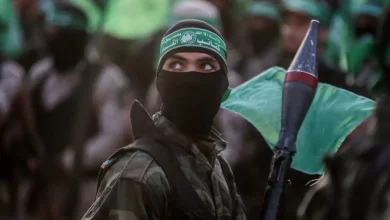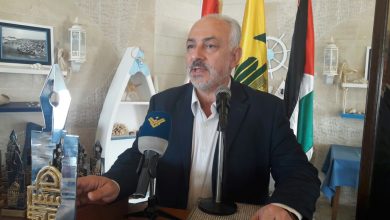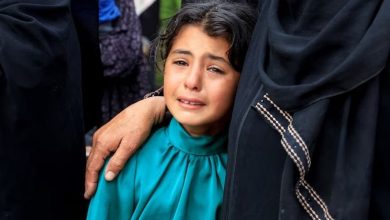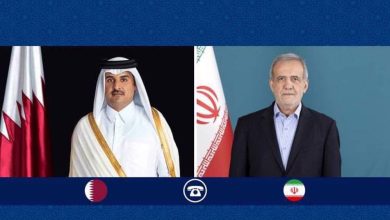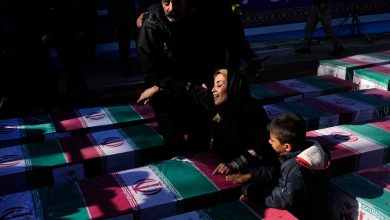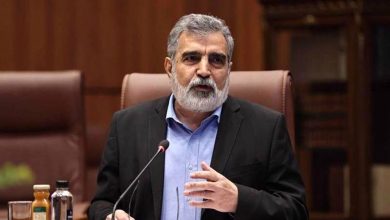Cairo prepares to host its first visit in 11 years from an Iranian president
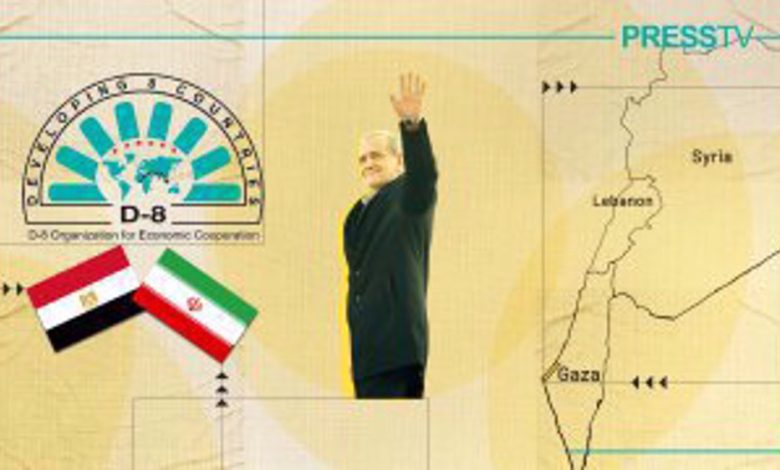
Masoud Pezeshkian commenced an official visit to Cairo this Thursday, becoming the first Iranian president to travel to the Arab nation since 2013. This noteworthy visit occurs amid escalating regional tensions.
The main focus of the visit is engagement with the D-8 Organization for Economic Cooperation, commonly referred to as Developing-8. This alliance of developing Muslim-majority nations is dedicated to enhancing economic collaboration among Islamic countries.
The historic visit by the Iranian president holds substantial potential as a pivotal moment in fostering renewed cooperation between Iran and Egypt. This diplomatic engagement could mark the beginning of a new era in relations between the two nations, following extensive diplomatic efforts undertaken over the past two years.
Regional analysts are closely monitoring the event to determine whether it will lead to improved diplomatic ties between the two nations. The meeting between Pezeshkian and his Egyptian counterpart, President Abdel Fattah el-Sisi, is set to take place on the margins of the summit in Cairo, drawing significant attention.
Abbas Araghchi, who is traveling with the president, is scheduled to hold discussions with his Egyptian counterpart to address bilateral and regional matters, according to the foreign ministry spokesman during a press conference on Monday.
Iran and Egypt, both prominent nations with majority Muslim populations, have faced a period of strained diplomatic relations since the occurrence of the Islamic Revolution in 1979.
A significant point of contention arose from Egypt’s decision to offer asylum to the overthrown Western-supported Iranian leader, Mohammad Reza Pahlavi, alongside its recognition of Israel, formalized through the 1978 Camp David Accords.
Diplomatic relations between the two nations experienced a significant enhancement following the removal of long-standing Egyptian leader Hosni Mubarak during the Arab Spring uprising in 2011.
Initiative for Strengthened Relations
Under the leadership of former Iranian President Ebrahim Raeisi, significant progress was made in re-establishing full diplomatic relations. This development followed a meeting between Raeisi and Egyptian President Abdel Fattah el-Sisi, which took place on the margins of the Arab-Islamic Summit held in Riyadh in November 2023.
This meeting represented the first interaction between the nations’ leaders in more than ten years, succeeding Mahmoud Ahmadinejad’s trip to Cairo in 2013 for the Organization of Islamic Cooperation (OIC) summit.
Oman has emerged as a pivotal intermediary between the two nations under the Raeisi administration, with Sultan Haitham bin Tariq Al Said making a diplomatic visit to Tehran in June 2023, delivering a communiqué from Egypt.
The sudden demise of President Raeisi in a helicopter crash in May 2024 precipitated a swift presidential election. Seasoned legislator and ex-health minister Masoud Pezeshkian subsequently secured victory in the expedited electoral process.
In July 2024, Egypt’s Foreign Minister, Badr Abdelatty, participated in the inauguration ceremony of Pezeshkian in Tehran.
In October, a diplomatic visit to Egypt was undertaken by Araghchi to engage in talks on regional matters, with a specific focus on the genocide in Gaza and Lebanon, alongside his Egyptian counterpart. Additionally, there was a brief interaction between Pezeshkian and Egyptian President Sisi at the BRICS summit in Kazan, where they also deliberated on regional concerns.
Experts anticipate that the upcoming D-8 summit in Cairo, commencing on Thursday, will serve as a pivotal moment for the formal re-establishment of diplomatic relations between Iran and Egypt.
Jafar Qanadbashi, a specialist in West Asia affairs from Iran, indicated to the Press TV website that there is a significant potential for the complete restoration of diplomatic relations and the reopening of embassies between Cairo and Tehran.
He observed that Egypt’s earlier reluctance to completely reestablish relations with Iran was shaped by its alliance with Saudi Arabia and the strategic policies of the United States.
In March 2023, the China-facilitated rapprochement between Iran and Saudi Arabia has paved the way for a more conducive atmosphere for reconciliation efforts between the two nations.
Tehran-based analyst Hassan Hanizadeh has expressed confidence that the current climate is conducive to the exchange of ambassadors between the two nations. This development comes despite external pressures from the United States and certain Arab governments that are opposed to Iran’s expanding influence in the region.
In an interview with Press TV, a spokesperson noted that President Sisi seems receptive to bolstering ties with Iran, citing the country’s economic potential and significant regional influence as key factors.
Hanizadeh highlighted Egypt’s pivotal role as a nexus between Asia and Europe, combined with its substantial population of 110 million, as offering considerable potential for Iran.
Call for Unity Among Muslim Nations
The D-8 Summit acts as a crucial platform for bridging divides within the Muslim world, providing a forum for robust diplomatic efforts to highlight and address pressing issues from Gaza to Syria.
Prior to his departure from Tehran on Wednesday, Pezeshkian emphasized the critical necessity of bolstering relations among Islamic nations as a strategy to counteract external threats. This was an allusion to the Israeli regime and its Western supporters, which he described as a form of apartheid.
He stated that strengthening and deepening practical relations with Islamic nations would enhance the ability to counteract conspiracies from adversaries against these and other Islamic countries.
Qanadbashi emphasized the significance of the D-8 summit for Iran, comparing it to a Muslim counterpart of the global BRICS coalition. He pointed out that the bloc accounts for 13 percent of the global population.
He stressed the potential benefits of creating a joint Islamic market, highlighting its capacity to diversify Iran’s economic alliances and mitigate the impact of stringent Western sanctions.
The summit’s agenda is anticipated to center around deliberations on the continuing humanitarian crisis in Gaza, where reports indicate that over 45,000 individuals, primarily women and children, have lost their lives since October of the previous year.
Leaders gathered for the summit are anticipated to discuss strategies for Islamic nations to adopt a cohesive approach in supporting oppressed communities in Gaza, Lebanon, and Syria.
The quest for peace in Gaza gains heightened significance as Egypt assumes the role of mediator in ongoing ceasefire discussions between Hamas and the Israeli authorities.
The summit is set to focus on restoring stability and democracy in Syria, with significant attention on the involvement of Turkish President Recep Tayyip Erdogan. Turkey’s pivotal role in shaping the future of post-Assad Syria positions it as a crucial participant in these discussions.
The situation in Syria remains dire in the aftermath of the overthrow of President Bashar al-Assad’s government by a coalition of militant groups, reportedly supported by Israel, the United States, and various regional nations.
The upcoming D-8 summit presents a crucial platform for Iranian and Turkish leaders to engage in dialogue regarding the ongoing developments in Syria. Their discussions are expected to focus on strategies to prevent further destabilization in the Arab nation amid the new governance led by the Hayat Tahrir al-Sham (HTS) militant group.

